| |
| |
| |
| Presented By Google |
| |
| Axios AM |
| By Mike Allen ·Nov 16, 2020 |
| ☕ Good Monday morning! Today's Smart Brevity™ count: 1,186 words ... 4½ minutes. - We hope you'll join Axios' Sara Kehaulani Goo, Courtenay Brown and Erica Pandey tomorrow at 12:30 p.m. ET for "Hard Truths," the second virtual event in our year-long series on systemic racism. Register here.
⚡ Situational awareness: Sex-abuse claims against the Boy Scouts of America have far eclipsed those against the Catholic Church — more than 82,000, the N.Y. Times reports. |
| |
| |
| 1 big thing: Rural areas airlift virus patients |
 Data: The COVID Tracking Project. Chart: Andrew Witherspoon/Axios America's rural areas are now seeing more coronavirus cases per capita than cities — and in some cases are airlifting patients to big hospitals, Axios' Caitlin Owens and Sam Baker report. - Why it matters: What started as an urban problem in the spring is now everyone's problem.
As the outbreak also continues to grow in big cities, rural systems may end up with nowhere to send patients. - Health care workers are less likely to be able to temporarily relocate to hotspots, since they'll be needed at home.
Rural nursing homes, already struggling with staff shortages, are ill-equipped to fight the new surge, The Wall Street Journal reports. - A growing share of deaths are "in rural and small-town communities in states such as Wisconsin, North Dakota and Montana."
Share this story. |
    |
| |
| |
| 2. Biden's Day 1: Climate challenge |
 |
|
| Illustration: Aïda Amer/Axios |
| |
| The quickest-out-of-the-gate parts of President-elect Biden's climate agenda will be steps to reverse President Trump's rollbacks across the environmental and energy space, Axios' Amy Harder writes in her "Harder Line" column. - The list is long (more than 100 by the N.Y. Times' count).
- But the biggest impact of Trump's presidency is lost time. Climate change is cumulative: The longer we wait, the harder it gets to solve.
How it works: Biden has two sequential goals to reduce U.S. emissions, which are in line with scientific consensus but which are also both going to be Herculean political tasks to start solving. - His first goal is to have a carbon-free electricity grid by 2035.
- Biden's longer-term goal is to have a net zero-carbon economy by 2050.
Biden is poised to leverage every inch of the federal government — financial rules, environmental regs and unprecedented limits on fossil-fuel leasing on federal lands and waters. |
    |
| |
| |
| 3. Tough turkey calls for colleges |
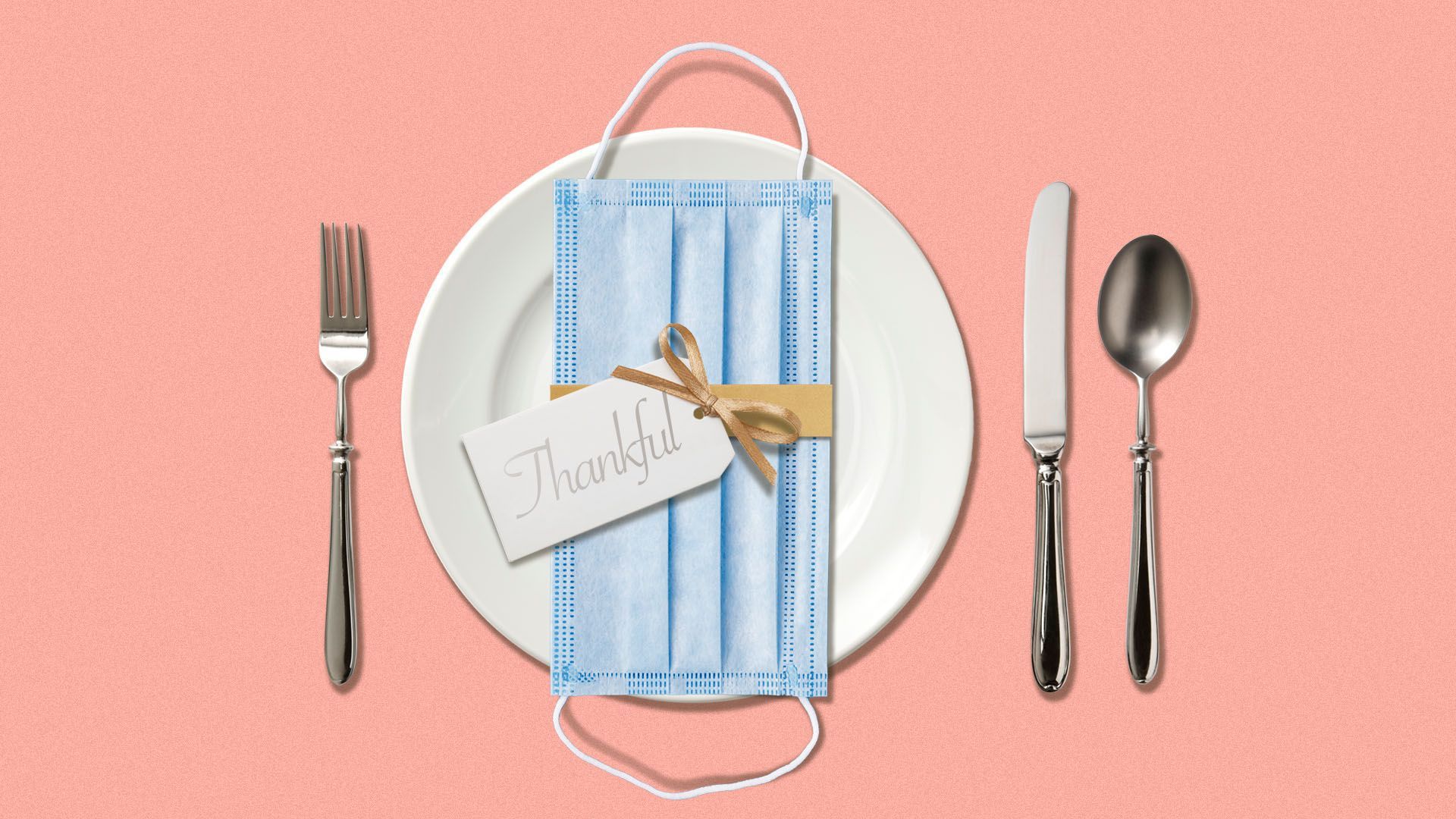 |
|
| Illustration: Sarah Grillo/Axios |
| |
| Boston University is asking students to stay on campus and have "friendsgiving," as colleges split over holiday travel, Axios' Marisa Fernandez reports. If students do go home, experts recommend self-isolation, tests and flu shots. - The State University of New York system announced that its 140,000 students must test negative if they want to leave campus.
Flashback: Thousands of students were responsible for COVID outbreaks after spring-break travel, a researcher from Ball State University found. |
    |
| |
| |
| A message from Google |
| Preparing small business owners for the holiday season |
| |
 |
| |
| Google has created the Google for Small Business holiday hub to help business owners get ready for the holidays. They can find helpful tools and resources, such as personalized recommendations to reach shoppers across Google Search, Shopping and Maps. Learn more. |
| |
| |
| 4. New era of human spaceflight |
| Photo: John Raoux/AP Above, a time exposure shows the Falcon 9 SpaceX rocket, with the Crew Dragon capsule, lifting off yesterday from Kennedy Space Center in Cape Canaveral, Fla. - Why it matters: The Crew Dragon is the first American-made spacecraft able to bring astronauts to orbit since the end of the space shuttle program in 2011, Axios Space author Miriam Kramer writes.
Until this summer's crewed SpaceX launch, NASA was solely reliant on Russia's Soyuz spacecraft to bring their people to and from the International Space Station. - Boeing is working to develop its own crewed capsule, called the Starliner, that is expected to fly its first crewed mission in the next year or so.
Share this story. |
    |
| |
| |
| 5. Health care workers at breaking point |
 |
|
| Illustration: Eniola Odetunde/Axios |
| |
| A crisis in the making: Health care workers are overworked, over-stressed and burned out — all as cases and hospitalizations keep climbing and climbing. - "The wave hasn't even crashed down on us yet," Eli Perencevich, an infectious disease doctor at the University of Iowa, told The Atlantic's Ed Yong.
- "It keeps rising and rising, and we're all running on fear. The health care system in Iowa is going to collapse, no question."
Gregory Schmidt, associate chief medical officer at the University of Iowa Hospitals and Clinics, told ProPublica's Caroline Chen: "People in leadership are starting to say things in meetings like, 'I have a sense of impending doom.'" |
    |
| |
| |
| 6. Obama: Big Tech position not "tenable" |
| Scott Pelley interviews President Obama at the Smithsonian's National Portrait Gallery. Photo: Eric Kerchner/"60 Minutes" Jeffrey Goldberg, editor-in-chief of The Atlantic, interviewed President Obama for the rollout of "A Promised Land," out tomorrow. - Obama said the populist wave was ignited by Sarah Palin, whose rallies "hinted at the degree to which appeals around identity politics, around nativism, conspiracies, were gaining traction."
Then it was abetted by social media: I don't hold the tech companies entirely responsible ... because this predates social media. It was already there. But social media has turbocharged it. I know most of these folks. I've talked to them about it. The degree to which these companies are insisting that they are more like a phone company than they are like The Atlantic, I do not think is tenable. They are making editorial choices, whether they've buried them in algorithms or not. The First Amendment doesn't require private companies to provide a platform for any view that is out there. Keep reading. - Go deeper: Takeaways from Obama's "60 Minutes" interview.
|
    |
| |
| |
| 7. China's new world order |
 Map: Danielle Alberti/Axios The largest free trade area in the world came into existence over the weekend — and the U.S. wasn't even invited, Axios Capital author Felix Salmon writes. - Why it matters: For the first time in living memory, the hegemon at the center of a major global free trade agreement is not the U.S.
- China has stepped into Uncle Sam's shoes, and now anchors the Regional Comprehensive Economic Partnership, or RCEP, an area covering 2.2 billion people and one-third of all the economic activity on the planet.
The bottom line: China's partners in RCEP are likely to remember for many years which of the two giants was more reliable. |
    |
| |
| |
| 8. Rehoboth to become Beach White House |
| President-elect Biden bikes at Cape Henlopen State Park near Rehoboth Beach, Del., on Saturday. Photo: Jim Watson/AFP via Getty Images The resort town of Rehoboth Beach, Del., has long called itself "The Nation's Summer Capital" — a hideaway for D.C. bigs going back to the early 20th century. - Now, it's likely to join Martha's Vineyard and Crawford, Texas, as famous presidential retreats, AP's Will Weissert writes.
President-elect Biden owns a $2.7 million, Delaware North Shores home with a swimming pool that overlooks Cape Henlopen State Park, is blocks from the ocean and a short drive from downtown Rehoboth Beach. - It's a getaway about two hours by motorcade from Washington and a bit less than that from Biden's longtime home in Wilmington.
|
    |
| |
| |
| 9. Capturing hope |
Cover: Kadir Nelson for The New YorkerIn his oil-paint cover for The New Yorker, Kadir Nelson captures "some of the hope that has crept onto the scene," the magazine writes in its "Cover Story": - "I hope that young girls around the country and the world will learn and accept that there are no barriers they can't overcome. Sometimes all we need to know is that what we want to achieve is possible."
|
    |
| |
| |
| 10. 🦃 Thanksgiving becomes a hot ticket |
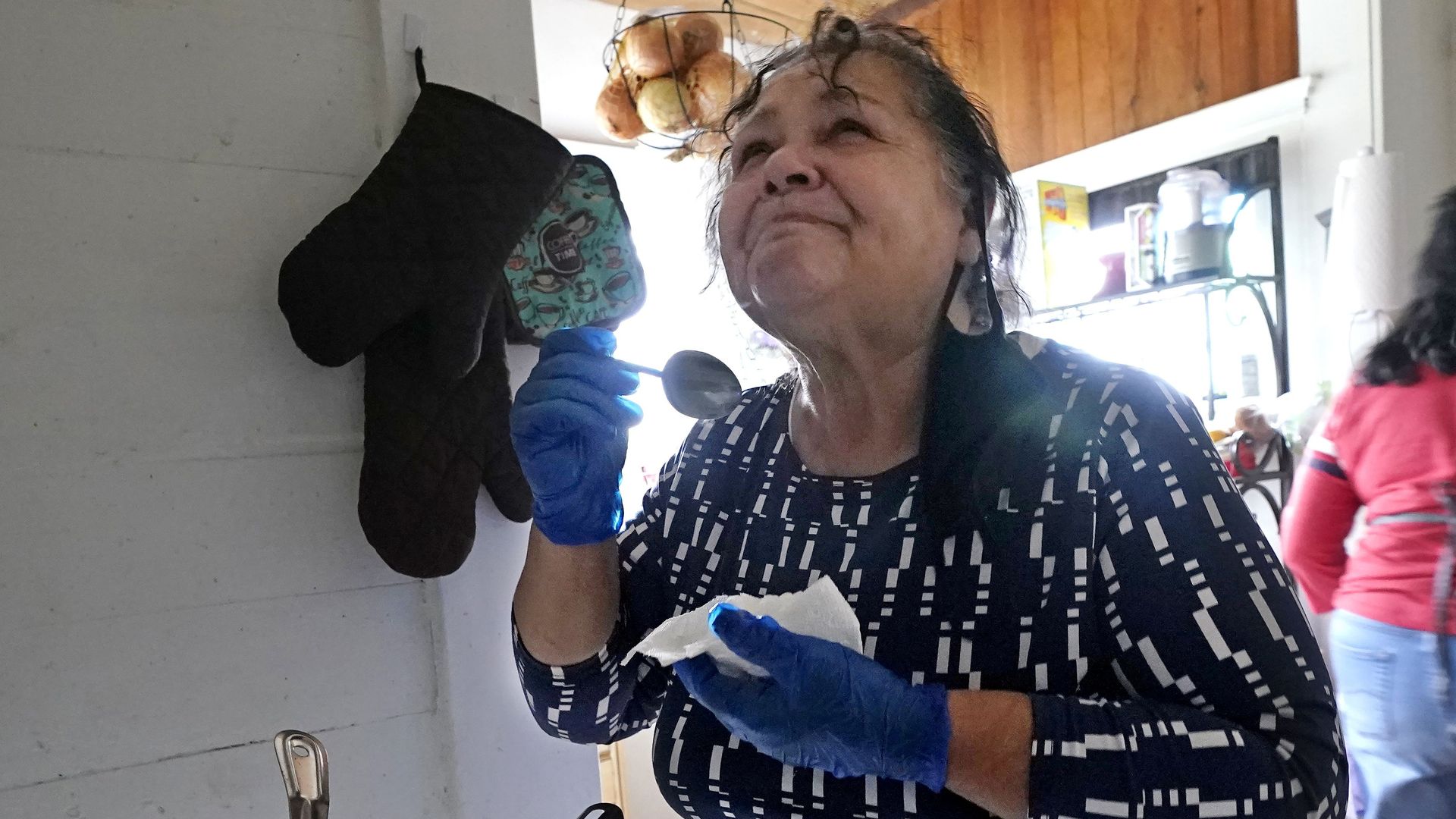 |
|
| Olga Garcia of Sedro-Woolley, Wash. tastes ingredients for her capirotada — bread pudding layered with cheese, bananas, raisins, cinnamon and pecans. Photo: Elaine Thompson/AP |
| |
| Many cities and states have capped family gatherings at 10, "creating angst for holiday hosts," The Wall Street Journal's Charles Passy writes (subscription). - Everyone's wondering if they'll make the cut.
- One way to be sure you do: Cook the turkey!
Joe Spallina of Long Island comes from a large family that typically celebrates with 30-plus people. How to whittle that to 10 — the limit in New York? - "I can tell you our family group chat has been on fire the last 24 hours."
Some families are organizing dish exchanges — "everyone can prepare a side dish to drop off at everyone else's homes," to still enjoy each other's cooking. |
    |
| |
| |
| A message from Google |
| A holiday e-commerce workshop from Grow with Google |
| |
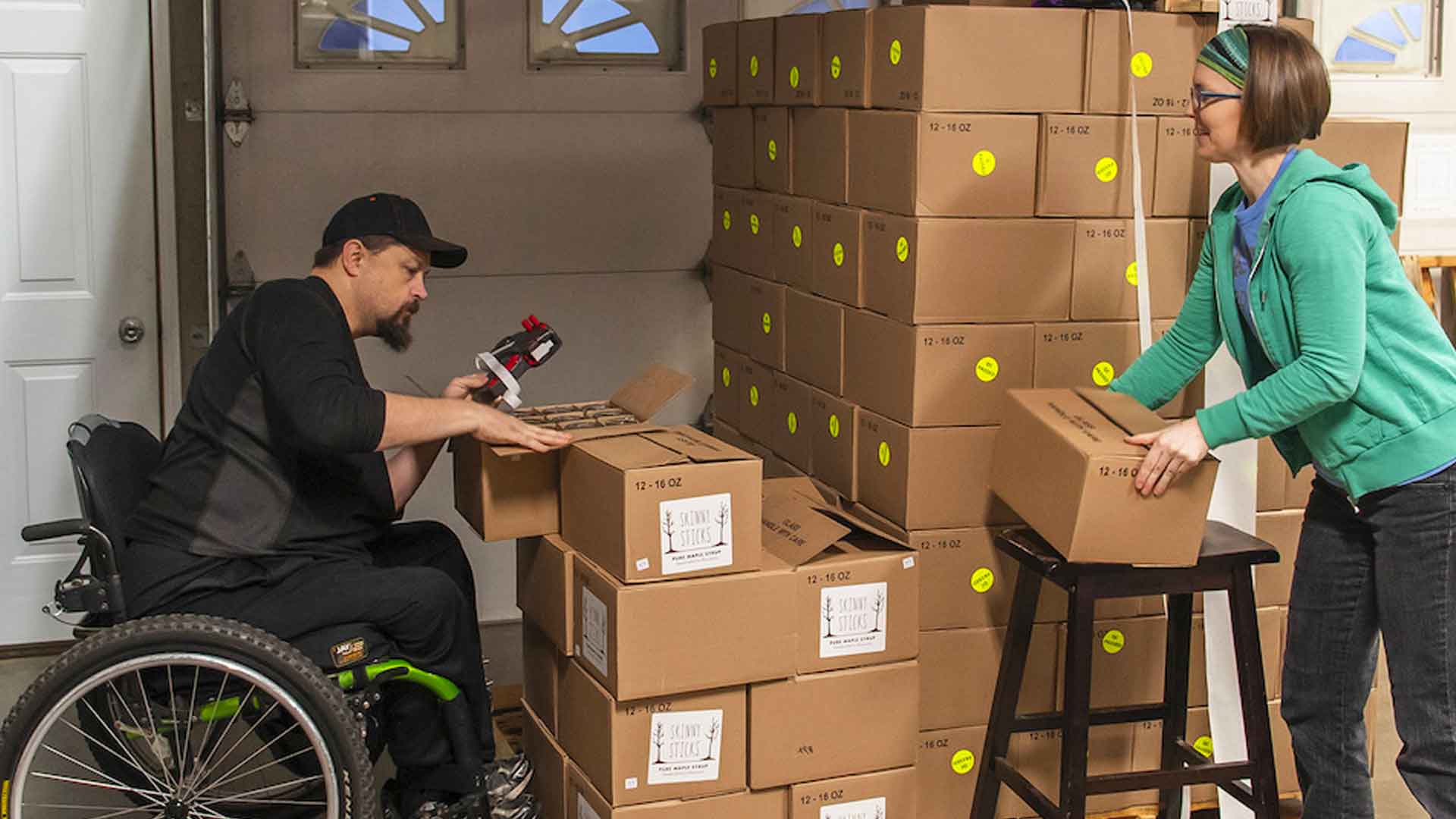 |
| |
| In this free virtual session, retailers will learn how to sell online to customers as they kick off their holiday shopping this season. Topics include how to list products on Google so that they can sell from anywhere, helpful tools to stand out online, and more. Learn more. |
| |
| 📬 Thanks for starting your week with us. Invite your friends to sign up for Axios AM/PM. |






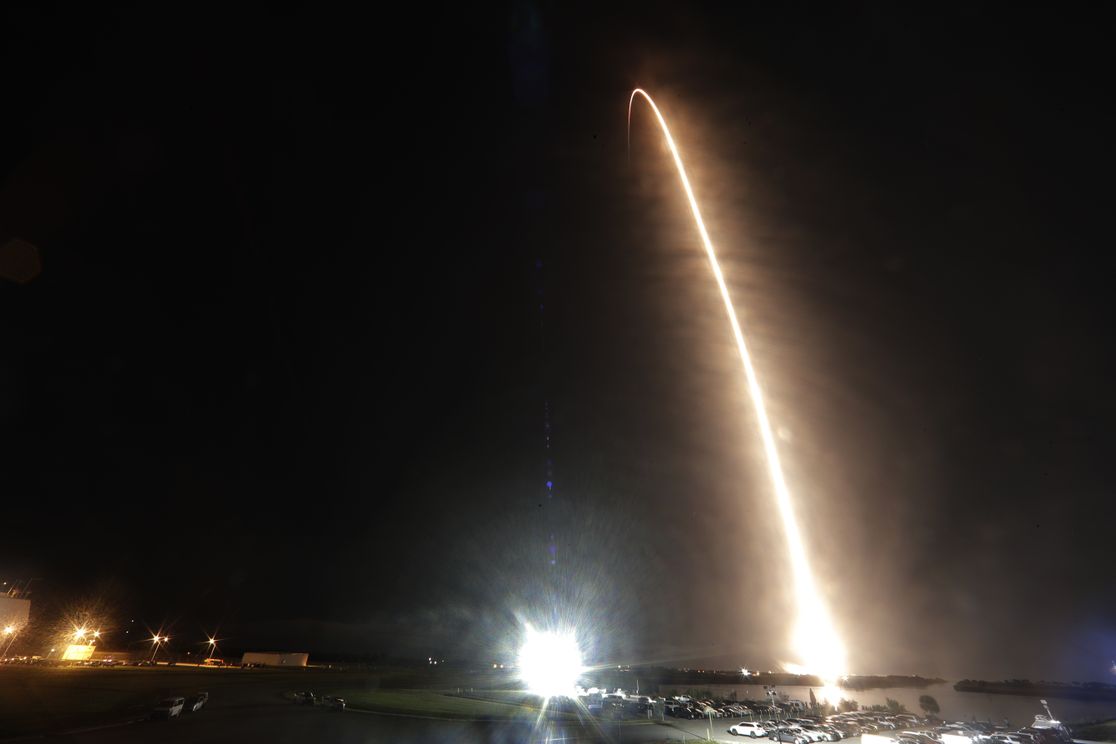

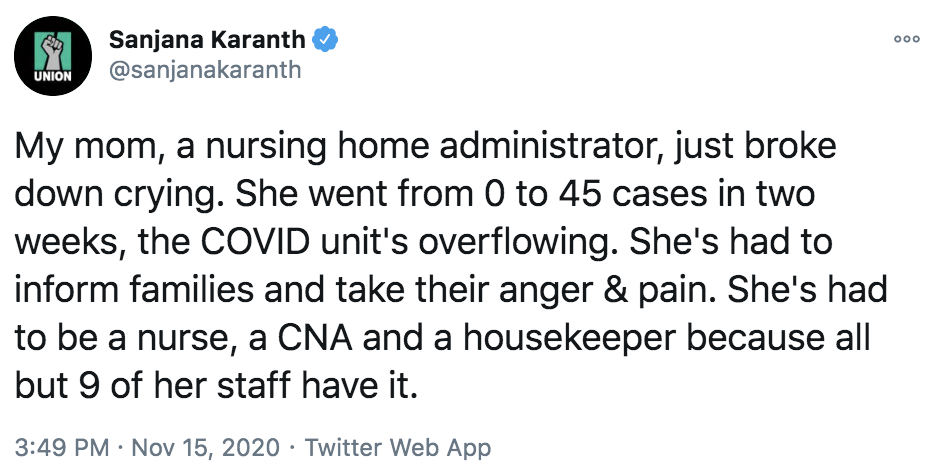
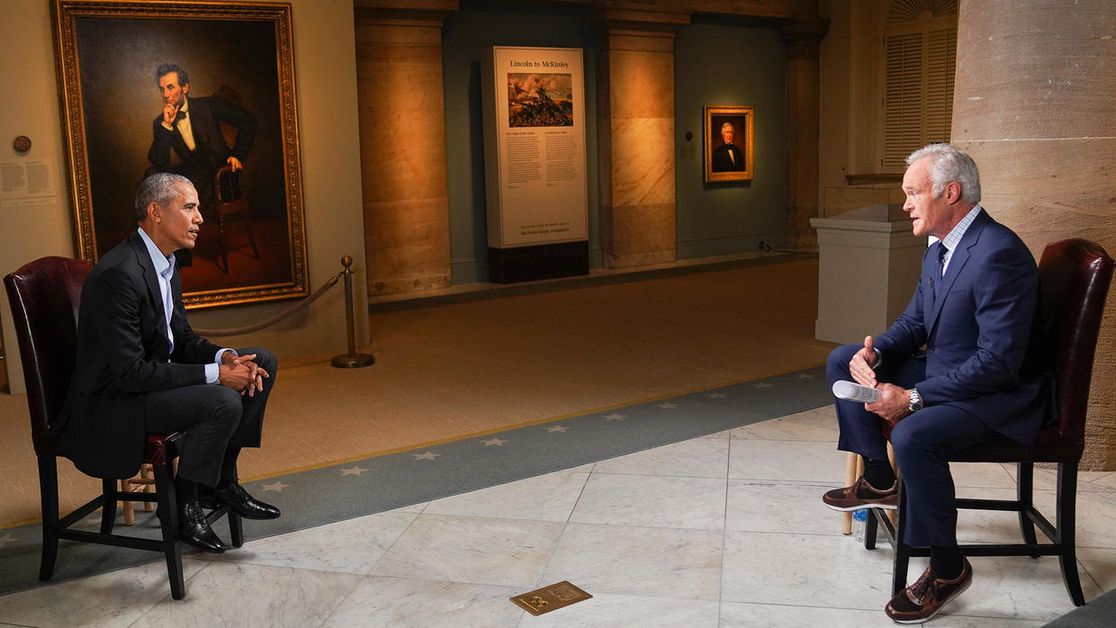

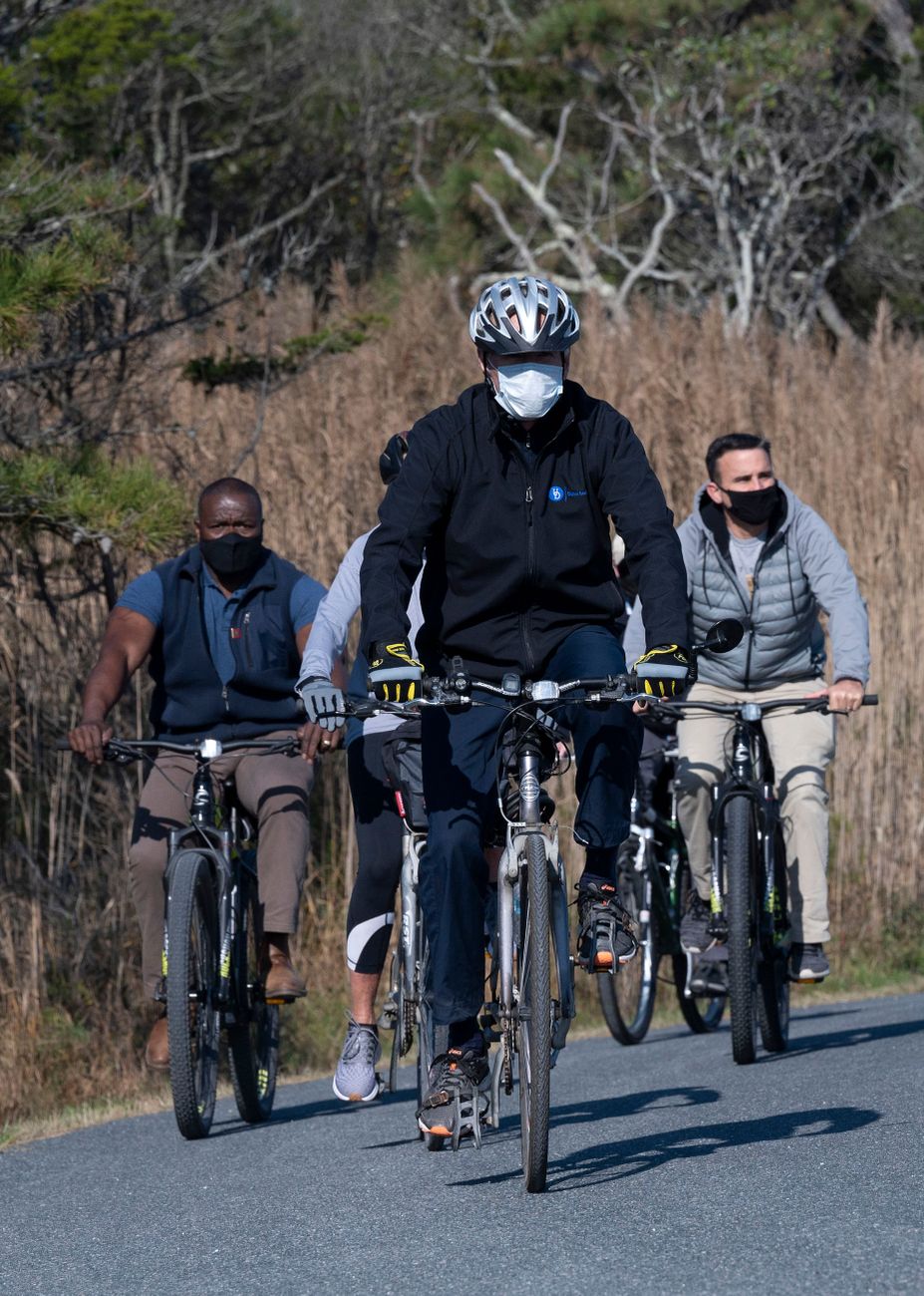


No comments:
Post a Comment